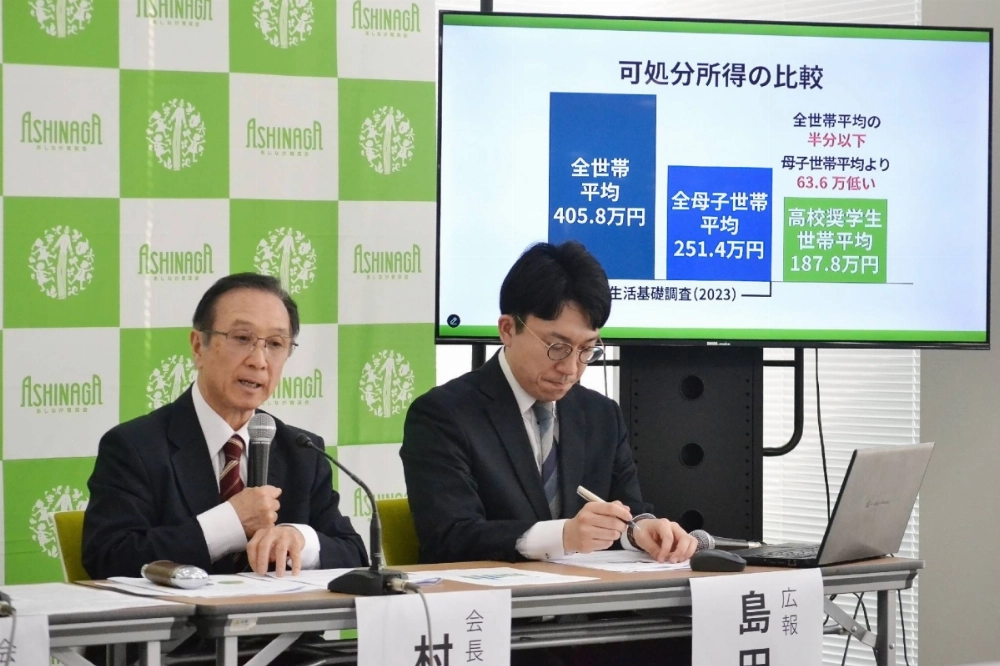Families receiving high school scholarships from Tokyo-based nonprofit group Ashinaga have an average disposable income of just 46% of the national average, according to survey results released Wednesday.
Ashinaga, which provides financial aid to children who have lost at least one parent due to illness, disasters or other causes, said it aims to bolster support for such families to prevent child poverty. The nonprofit's high school scholarship program provides ¥30,000 ($200) per month to those eligible.
The findings highlighted three major challenges facing parents and guardians of Ashinaga's high school scholarship recipients: economic hardship, "time poverty" and social isolation.


















With your current subscription plan you can comment on stories. However, before writing your first comment, please create a display name in the Profile section of your subscriber account page.